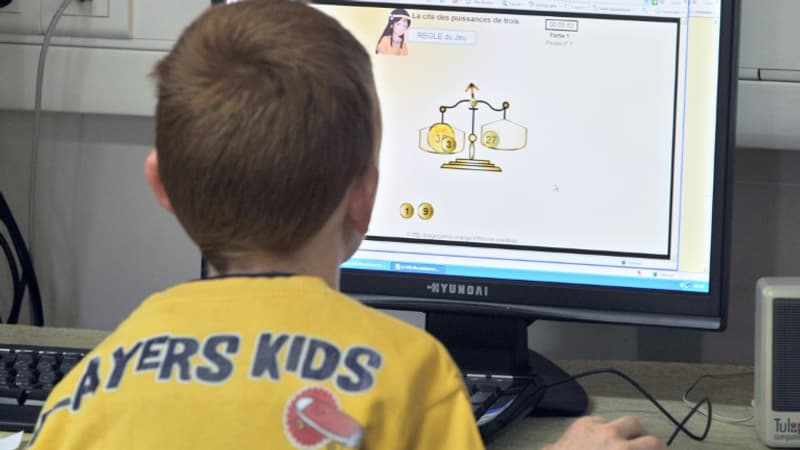Tablets, laptops and computers are now a part of everyday family life. The notion of “addiction to the screen” is not the subject of a scientific consensus, as we mentioned in another article. But studies have long suggested risks in terms of cognitive development, mental health, sleep disturbances, obesity and a sedentary lifestyle (which itself has an impact on cardiovascular fitness) in children exposed to screens for a long time. .
However, children spend an average of 1h19 a day in front of a screen on weekdays and 2h07 on weekends, according to an Ipsos study carried out in January 2023 on behalf of the government, which recently launched an awareness campaign on “paternity digital”. For its part, the National Assembly adopted in early March a series of measures to protect children from excessive exposure. So, what is the best way to manage the sometimes complicated relationship of the youngest with digital?
No screens for small children
The precise age below which screen-free use is recommended is debated: not earlier than three years for the French Academy of Medicine, or 18 months according to the American Academy of Psychiatry for children and adolescents.
For her part, Vanessa Lalo, a psychologist specialized in video games and digital practices, relies on the Canadian recommendation of two years.
The main reason, according to her, has less to do with the screens themselves than with the fact that they take precedence over the time spent “learning the world in three dimensions, manipulating objects, speaking, reading.” The only exception that she grants to the little ones: video calls that allow them to maintain social ties with the family, for example.
time limit
The psychiatrist Serge Tisseron proposed for his part the famous rule of “3-6-9-12”: no screen before the age of 3 (and before the age of 5, no more than an hour); any handheld game console under the age of 6; no internet for 9 years; and finally no Internet alone and preferably no social networks before the age of 12, a period in which care must be taken that the child continues to move around in tasks instead of passively consulting screens.
For Vanessa Lalo, the “dose effect”, that is, the hypothesis according to which the more time a young person spends in front of a screen, the more likely it is that they will develop possible disorders, is only attested after “six or seven hours a day “.
qualitative content
The important thing is “not to leave the children alone with the TV as a babysitter”, and to push them “to verbalize, to play”, recalls the psychologist. To a younger one, we can, for example, ask what the characters of the cartoon she has just seen were called, their colors, the plot, “to force him to request his memory and language, and make a link with the tangible world”. She recommends giving adolescents more freedom from the age of 12, “always of course, in dialogue, support, prevention and prevention.” Often disinterested in the virtual world his son thrives in, he would benefit from taking an interest in it, even if it means wasting time finding out about his favorite influencers, says Vanessa Lalo.
The psychologist regrets that digital uses continue to depend “a lot, unfortunately, on social inequalities.”
It is also about guiding young people towards qualitative content, selected by parents. “We tend to forget that there is also interesting content and that it can be collective experiences,” suggests the specialist, like watching a family movie or a YouTube video to learn a new language or a new skill.
Given the techniques of applications to capture attention, are the youngest condemned to scroll non-stop on TikTok, like their parents used to on Instagram or Facebook? Vanessa Lalo is not fatalistic: “It is not because a practice is promoted by a platform that we cannot regain control and control of our consumption by favoring other types of content or finding rituals so as not to spend too much time on it.”
Source: BFM TV


